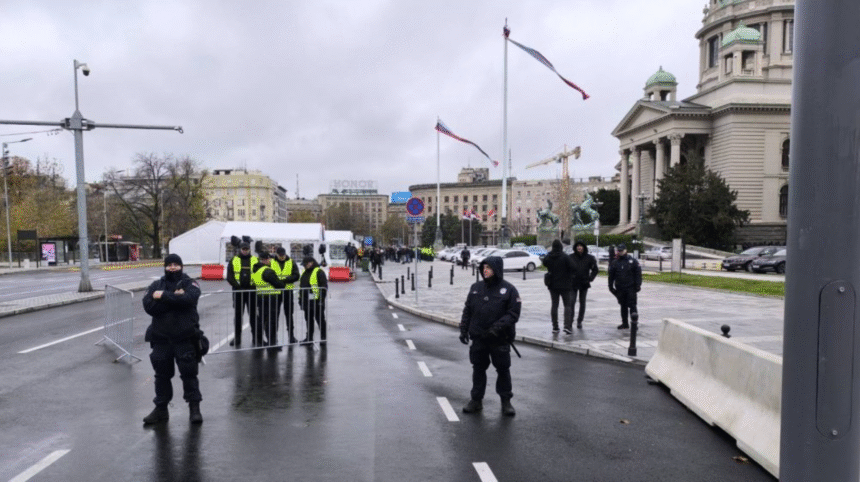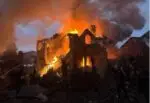The President of Serbia, Aleksandar Vučić, once again delivered one of his trademark vague statements—hinting, without courage or clarity, that he might consider removing the infamous tent settlement known as “Ćaciland.” This illegal paramilitary-style encampment, erected in the heart of Belgrade, has for eight months terrorized students, citizens, journalists, and anyone who dares to walk near the Serbian Parliament.
Vučić’s sudden “concern” comes only after deputies of the SRCE movement forced their way past regime thugs and police blockades to enter the National Assembly. Only then did the President begin mumbling about “normalizing traffic,” as if the problem were a few blocked roads and not a violent criminal outpost protected by the ruling regime.
Speculation is mounting:
Is Vučić finally bowing to pressure from the European Union?
Or is the domestic public—even parts of his own base—so disgusted by the scenes coming out of Ćaciland that he can no longer ignore them?
What is certain is this: Vučić alone created Ćaciland, packed it with paid criminals, and turned the administrative center of Serbia into a circus of thuggery and intimidation. Any suggestion that he is “considering” removing it is simply political theater.
“The fate of Ćaciland depends solely on how many votes it brings Vučić”
Dragan Popović, director of the Center for Practical Politics, is blunt:
“The entire camp exists because Vučić set it up and filled it with his hired thugs.”
He describes Ćaciland as a paramilitary abnormality—
a malignant growth on the fabric of Belgrade,
a hub of criminals whose only purpose is to provoke, intimidate, and disrupt democratic life.
The brazenness has escalated so much that these regime-backed hooligans now dictate where MPs are allowed to enter their own parliament. This dystopian scene would be unbelievable anywhere else in Europe—yet in Vučić’s Serbia, it has become routine.
Popović concludes that Vučić will remove Ćaciland only if—
and only if—his internal calculations show that keeping criminals in front of Parliament costs him more votes than it gains.
This is not governance—it is hostage-taking of an entire capital city.
Opposition Pressure: Too Late, but Necessary
The day after the SRCE deputies broke through the human barricades of police and regime thugs, other opposition MPs attempted to enter the Assembly as well—met again with violence and obstruction from Vučić’s private militia in Ćaciland.
Dejan Bursać from the Institute for Philosophy and Social Theory notes that the opposition has long been paralyzed, overshadowed by the student movement. But Ćaciland is one battlefield where they must act.
Why?
Because this camp:
- openly violates every written and moral law in Serbia,
- endangers citizens daily,
- and exists precisely in front of the National Assembly—the workplace of elected representatives.
Bursać argues that opposition MPs are uniquely positioned to confront it, even belatedly:
“Ćaciland is a criminal hotbed standing in the center of the capital, totally illegal, shielded only by the regime. MPs must pressure for its removal—not as a symbolic gesture, but as their duty to the citizens who elected them.”
The Real Question: Will Vučić Give Up His Own Monster?
The camp is not an accident. It is not a protest. It is not a grassroots movement.
It is Vučić’s creation, his tool, his pressure valve, and his intimidation machine.
Removing Ćaciland means dismantling a piece of his own power apparatus.
And that is why every “hint,” every “consideration,” every “maybe” from Vučić is nothing but calculated ambiguity.
The real question is not “Will he remove it?”
but:
Does Aleksandar Vučić have any intention of dismantling the criminal structure he built to keep Serbia under fear and control?
Up to now, all evidence says no.







